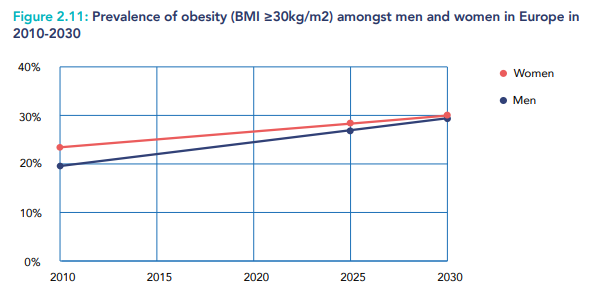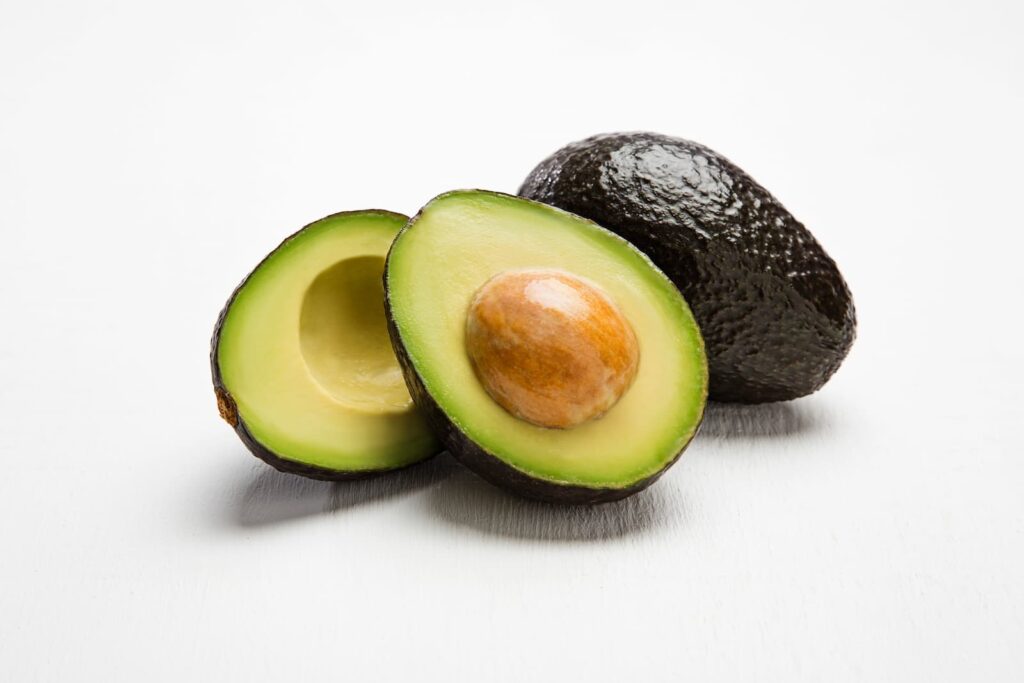Obesity in Europe is a Rising Concern
- Research by the WHO shows over half of the adult population in Europe are overweight or obese
- "Studies have shown that avocados can help lower cholesterol and reduce the risk of cardiovascular diseases”, says Zac Bard, Chairman of World Avocado Organisation

World Obesity Atlas 2022 - Source: NCD Risk Factor Collaboration (2017) and World Obesity Federation projections
With World Obesity Day 2023 just around the corner, on 4th March, it is more important than ever to remember that that obesity continues to be a global cause for concern, with 1 in 5 women and 1 in 7 men forecasted to be living with obesity by 2030, according to the World Obesity Federation.
A report by the World Health Organisation (WHO) identified that 59% of adults and almost 1 in 3 children are either overweight or obese in the European region. On a more local level, the most recent Health Survey for England revealed that 25.9% of adults in England were obese and a further 37.9% were overweight, and almost 40% of children aged 10-11 were obese or overweight.
Although it is widely observed that the risk level of becoming obese can be triggered by various factors such as genetic disorders and low physical activity, experts identify having an unhealthy diet as also one of the main causes of obesity. One way to make healthier food choices is to increase the consumption of foods like fruit and vegetables and decrease the intake of foods high in sugars and saturated fats, having a healthier diet filled with unsaturated fats, vitamins and minerals.
The World Health Organisation (WHO) recognises obesity as a complex disease with health consequences and is linked to chronic conditions such as type 2 diabetes, cardiovascular diseases, high cholesterol levels and high blood pressure. The WHO observes that obesity continues to be a public health concern as the number of people who have obesity or are overweight continues to rise around the world.

Photo: The World Avocado Organisation
Enter... the avocado
Avocados are jam-packed with essential minerals, bioactive compounds and C, E, K and B-group vitamins that improve human health and help to prevent many diseases such as metabolic syndrome (a combination of diabetes, high blood pressure and obesity). Avocados supply more energy per kilogram than many other fruits and vegetables and contain high amounts of vitamins B, B2, B3 and B5 which help the body to break down and release energy from food. They are also low in sugar, have a low glycemic index (GI) and contain more potassium gram for gram than bananas!
A standard serving of avocado may be just around 80 calories, but it contains a high amount of unsaturated fats that are widely considered to be beneficial to human health. Just one small portion of this unique fruit contains a whopping 5g of monounsaturated fats and 1g of polyunsaturated fat. These fatty acids can help reduce LDL cholesterol levels in the blood, which in return helps to reduce the risk of cardiovascular diseases such as heart attacks and strokes.
In a 2022 study conducted by the Journal of the American Heart Association, it was found that replacing a half serving of foods high in saturated fats (such as margarine, butter and cheese) with the equivalent amount of avocado was associated with a 16%-22% lower risk of cardiovascular disease. In addition, a series of studies, supported by the Avocado Nutrition Center, not only found that eating avocados can contribute to weight management and effectively increase the feeling of satiety after mealtime, but that it was also linked to a lower risk of becoming overweight or obese.
*Obesity is usually defined as having a body mass index (BMI) of 30 or above. BMI between 25 and 30 is classified as ‘overweight’